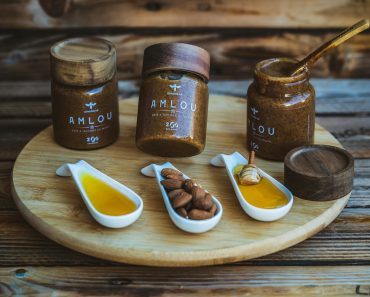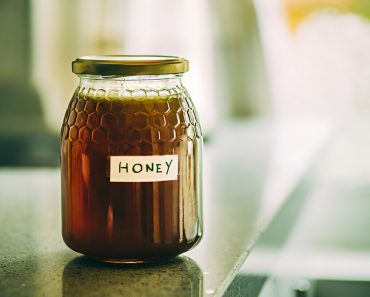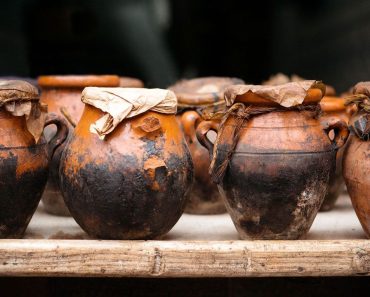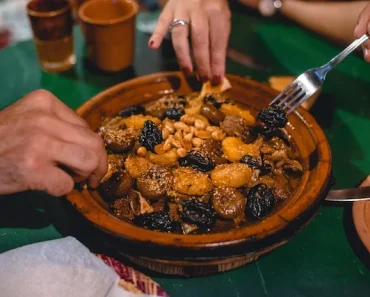
Moroccan Argan Oil
In the arid lands of Morocco, where the sun kisses the earth with relentless fervor, lies a treasure revered by generations—the golden elixir known as Argan oil. This ancient substance has woven its way into the cultural fabric of Morocco, celebrated for its rich history, versatile characteristics, and remarkable culinary applications. Join me on a journey as we delve deep into the heart of Moroccan Argan oil, uncovering its origins, unique properties, and culinary wonders.
Origins Moroccan Argan Oil and Historical Significance
The story of Argan oil is as ancient as the Moroccan landscape itself. Derived from the kernels of the Argan tree (Argania spinosa), this oil has been cherished for centuries by the Berber people, who have inhabited the region for millennia. The Argan tree, with its gnarled branches and resilient demeanor, is a symbol of endurance in the face of harsh conditions—a fitting representation of the Moroccan spirit.
Historically, Argan oil held multifaceted significance. Beyond its culinary and cosmetic uses, it played a vital role in traditional medicine and cultural rituals. Berber women would gather the precious Argan fruits, extracting the kernels and laboriously processing them to obtain the coveted oil. This process, steeped in tradition and community collaboration, added to the mystique surrounding Argan oil.
Characteristics and Composition
Argan oil’s allure lies in its exceptional composition. Rich in essential fatty acids, including oleic and linoleic acids, it nourishes the skin and hair with unparalleled efficacy. Moreover, Argan oil is a potent source of antioxidants, such as tocopherols and polyphenols, which combat free radicals and promote skin rejuvenation.
One of the distinguishing features of Moroccan Argan Oil is its versatility. It exists in two primary forms: culinary and cosmetic. Culinary Argan oil, often referred to as “arganier,” boasts a deep, nutty flavor profile that enhances a myriad of dishes. In contrast, cosmetic Argan oil is renowned for its moisturizing and anti-aging properties, making it a staple in skincare regimens worldwide.
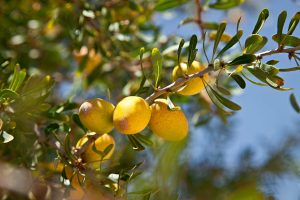
Moroccan Argan Oil , Cooking with Argan Oil
Ingredients and Production Process
The production of Argan oil is a labor-intensive endeavor that begins with harvesting the Argan fruits. These fruits, resembling small yellow plums, are handpicked during the summer months when they ripen to a golden hue. Inside each fruit lies a hard shell containing the prized Argan kernels.
To extract the kernels, skilled artisans employ traditional methods passed down through generations. The outer shell is cracked open using stones, revealing the precious kernels within. These kernels are then ground and cold-pressed to extract the oil, ensuring that its nutrient-rich composition remains intact.
The culinary variant of Argan oil undergoes a slightly different process. After the kernels are extracted, they are gently roasted to enhance their flavor profile. This roasting imbues the oil with a deep, nutty aroma, reminiscent of toasted almonds and hazelnuts.
Culinary Applications and Cooking Techniques
Moroccan cuisine, renowned for its vibrant flavors and aromatic spices, embraces Argan oil as a culinary gem. The oil’s distinctive nuttiness adds depth and complexity to a wide array of dishes, ranging from traditional tagines to contemporary salads. Here are some popular culinary applications of Argan oil:
- Tagines: Argan oil is often drizzled over slow-cooked tagines, imparting a rich, nutty flavor to the tender meats and vegetables.
- Salads: A dash of Argan oil transforms simple salads into gourmet delights, complementing fresh greens, fruits, and nuts.
- Dips and Dressings: Argan oil can be blended into creamy dips or whisked into vinaigrettes, adding a luxurious touch to appetizers and side dishes.
- Grains and Legumes: When tossed with couscous, quinoa, or lentils, Argan oil elevates these staples with its distinctive taste and nutritional benefits.
- Baking: In baking, Argan oil can be used as a substitute for butter or other oils, lending a unique flavor profile to pastries and desserts.
When cooking with Argan oil, it’s essential to note that its delicate flavor can be overwhelmed by excessive heat. Therefore, it is best used as a finishing oil or added to dishes shortly before serving to preserve its aromatic nuances.
Cultural Significance and Sustainability
Beyond its culinary and cosmetic virtues, Argan oil embodies the cultural heritage and sustainability ethos of Morocco. The Argan tree, endemic to the region, plays a crucial role in preventing desertification and supporting local ecosystems. Additionally, the production of Argan oil empowers rural communities, particularly Berber women, who have traditionally been the custodians of this ancient craft.
In recent years, the global demand for Argan oil has surged, leading to concerns about sustainability and fair trade practices. Responsible brands and cooperatives prioritize eco-friendly harvesting methods, equitable wages for workers, and initiatives aimed at preserving the Argan forests for future generations.
Cooking with Argan oil offers a range of benefits that extend beyond mere culinary pleasure. Here are some key advantages of incorporating Argan oil into your cooking repertoire:
1. Nutritional Richness
Argan oil is packed with essential nutrients, including monounsaturated and polyunsaturated fats, vitamin E, antioxidants, and plant sterols. These nutrients contribute to heart health, skin nourishment, and overall well-being. Using Argan oil in cooking allows you to infuse your dishes with these beneficial compounds, promoting a balanced diet and supporting your body’s nutritional needs.
2. Distinctive Flavor Profile
One of the primary attractions of cooking with Argan oil is its unique flavor profile. With its nutty, slightly toasted taste, Argan oil adds depth and complexity to dishes. It complements a variety of ingredients, enhancing the overall taste without overpowering other flavors. Whether drizzled over salads, used in marinades, or incorporated into sauces, Argan oil lends a distinctive and delicious touch to your culinary creations.
3. Heart-Healthy Properties
The fatty acid composition of Argan oil, particularly its high content of oleic and linoleic acids, makes it beneficial for cardiovascular health. These healthy fats can help reduce LDL cholesterol levels while increasing HDL cholesterol, promoting a healthier lipid profile and reducing the risk of heart disease. By using Argan oil as a cooking oil or finishing oil, you can support heart health without compromising on taste.
4. Antioxidant Protection
Argan oil is rich in antioxidants, such as tocopherols and polyphenols, which help neutralize free radicals in the body. Free radicals are unstable molecules that can cause oxidative stress and contribute to aging and various health issues. Incorporating antioxidant-rich Argan oil into your cooking not only enhances the flavor of your dishes but also provides a natural defense against oxidative damage, supporting cellular health and vitality.
5. Versatility in Cooking
Argan oil’s versatility makes it a valuable addition to a wide range of recipes. Whether you’re sautéing vegetables, grilling meats, dressing salads, or baking pastries, Argan oil can be used in various cooking techniques. Its high smoke point makes it suitable for moderate-heat cooking methods, such as stir-frying and roasting, while its flavorful nature makes it an excellent finishing oil for enhancing the taste of cooked dishes.
6. Skin and Hair Benefits
While the primary focus of cooking with Argan oil is its culinary appeal, it’s worth noting that this oil also offers skincare and haircare benefits. The same nutrients that nourish your body from within, such as vitamin E and essential fatty acids, can also be beneficial when applied topically. Some culinary Argan oils are also suitable for cosmetic use, allowing you to enjoy its moisturizing and anti-aging properties in both your kitchen and beauty regimen.
7. Cultural and Sustainable Choice
Choosing to cook with Argan oil not only enriches your culinary experience but also connects you to a rich cultural heritage. Argan oil has been a staple in Moroccan cuisine for centuries, deeply rooted in tradition and craftsmanship. By supporting responsibly sourced Argan oil products, you contribute to sustainable practices that preserve the Argan forests and empower local communities, particularly Berber women who are often involved in the oil’s production.
In summary, cooking with Argan oil offers a holistic approach to culinary enjoyment and well-being. From its nutritional richness and distinctive flavor to its heart-healthy properties and cultural significance, Argan oil adds a touch of excellence to your cooking endeavors while promoting a healthier lifestyle.
Conclusion: A Golden Legacy
As we conclude our exploration of Moroccan Argan oil, it’s clear that this golden elixir transcends mere culinary and cosmetic realms. It embodies a legacy of resilience, tradition, and natural abundance—a testament to the enduring bond between humanity and the earth.
Whether drizzled over a savory tagine, massaged into the skin for a youthful glow, or savored as a symbol of Moroccan heritage, Argan oil continues to captivate hearts and minds worldwide. Its journey from the sun-drenched groves of Morocco to kitchens and beauty shelves globally is a testament to the timeless allure of nature’s treasures.
